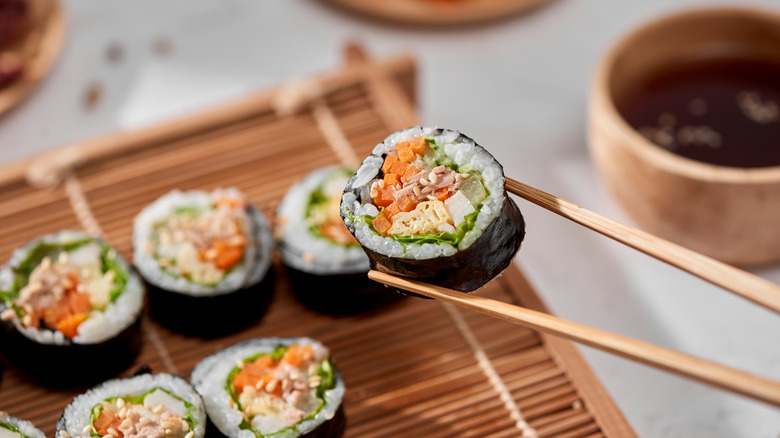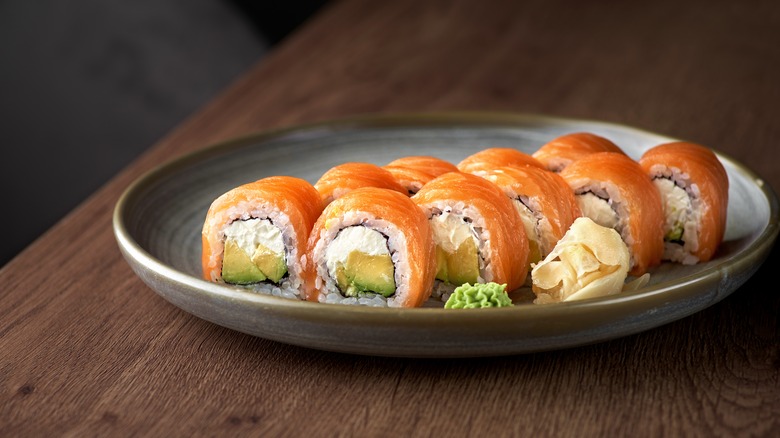Why You Shouldn't Make Homemade Sushi Too Far In Advance
If you love sushi, the Japanese food that may take the form of nigiri, maki, and sashimi (via MasterClass), chances are you've chowed down on a variety of sushi offerings in your day, from classic imitation crab-stuffed California rolls to spicy crab salad rolls drizzled with fiery Kewpie mayonnaise. Sushi is said to trace its origins to ninth-century Japan, where Buddhism was spreading. And since practicing Buddhists tend to avoid eating meat, according to PBS, many adherents turned to eating fish and combining it with rice, which was, and continues to be, a staple part of Japanese diet and culture (via Stanford University).
Of course, over the centuries, sushi has ventured far beyond the borders of Japan, making its way onto the menus of many countries around the world (via the Guardian) — occasionally in some surprising varieties, such as Dorito Crunch Rolls and Cheeseburger Sushi (via Condé Nast Traveller).
Plenty of people have also tried their hand at making sushi at home, which can be a fun way to entertain, according to The Inspired Home. But if you're planning on rolling your own, don't do it too far in advance.
Refrigerating sushi isn't always the best option
Preparing homemade sushi can be a fun way to feed dinner guests, offering a range of colors, textures, and flavors. But since making sushi is a somewhat laborious process — involving preparing and cooling sushi rice, slicing raw fish, and using a sushi mat to roll ingredients together (via Epicurious), it can be appealing to make the sushi ahead of time. And that's totally fine — as long as you don't prepare the sushi too far in advance.
According to the U.S. Food & Drug Administration (USDA), perishable foods should never be left at room temperature for more than two hours, in order to prevent or slow the growth of bacteria that can cause foodborne illness. So if you want to make sushi two hours ahead of time, don't make it any earlier. Although it might be tempting to do so and stash the sushi in the fridge, that's not the best idea because refrigeration deteriorates the texture of sushi, and the dish is traditionally served at room temperature for optimal flavor and texture (via Tsubugai).
The good news? Sushi rice — which many sushi lovers insist is the most important part of sushi — can easily be prepared in advance. Tsubugai states that sushi rice can be cooked up to three days in advance of rolling sushi, then covered and refrigerated; Simply microwave it for a few seconds before proceeding with your recipe.

